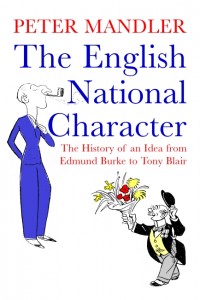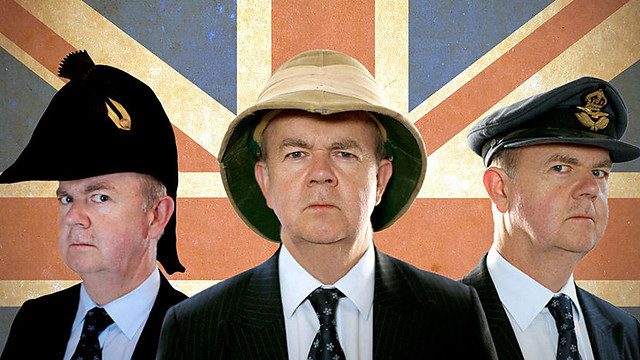
This evening sees the broadcast of the first episode of a new BBC Two television series:Ian Hislop’s Stiff Upper Lip – An Emotional History of Britain, produced by Deborah Lee for Wingspan Productions. All being well, I think I will pop up briefly a couple of times as one of the interviewees. I was also involved in the series in a minor way as an academic consultant.
To be honest, I think I learned more from the team of hard-working researchers, directors and producers than they did from me, but it was certainly interesting to be able to contribute to discussions about how to represent such complex and frankly nebulous historical entities as national identities, emotional styles, and metaphorical upper lips within a compelling and clear narrative for television. As readers of major works by Peter Mandler and Paul Langford will know, it is possible to write absorbing and illuminating historical monographs on these subjects. But how to translate such complex ideas into the language of television?
This is not the first time I have been interviewed about the history of British emotions for a television programme. Slightly oddly, on all these occasions, the presenter of the programme has been in the comedy business – Tony Robinson, Jo Brand, and now Ian Hislop – rather than the history business. In the case of Brand and Hislop the root cause of their interest in the subject is the same – namely their own squeamishness about public displays of emotion. These experts in the production of laughter seem to be troubled by other expressions of emotion. Jo Brand interviewed me for her documentary a couple of years ago about the recent outburst of televisual weeping, which she found a massive turn-off:
My involvement in the new Ian Hislop series began at a research symposium on the theme of ‘Wandering Feelings‘ organised by Tiffany Watt-Smith (QMUL) and Carolyn Burdett (Birkbeck) at the Queen Mary Centre for the History of the Emotions in 2011. I gave a short presentation on that occasion about Victorian philosophies of weeping. That talk included some reference to my research into the weeping judge Sir James Shaw Willes, whom I have written about in the Journal of Victorian Culture, and also to a weeping policeman, reported in the press in the 1880s as ‘Robert Emotional’. The latter figure (about whom I’ll write a little more in a future post) particularly caught the imagination of Nick Tanner, the assistant producer who attended the symposium, and that provided the starting point for our conversation about how I could help.
The first episode, mapping out the forgotten emotional past of the British, as well as tracing the early origins of the stiff upper lip, faced a particular conceptual challenge: How can one portray the prehistory of an imaginary national trait in a period before it had even been first imagined? And if one had to put a date on the first emergence of the idea of a ‘stiff upper lip’, what should that date be? Did early-modern proponents of Stoic philosophy or of Puritanism offer anything like an endorsement of a stiff upper lip? Probably not. Do we have to wait until the Victorian period for the first real signs? As you will see, the first episode neatly spans eighteenth- and nineteenth-century materials in a way that manages to offer an answer while, wisely, not pinning itself down to any cut-and-dried dates or definitions.
In my own current research project, on the history of weeping in Britain, I have been particularly on the look-out for interesting sources indicative of changing attitudes to the shedding of tears, and this has led me to put particular emphasis on the role of the French Revolution. The earliest statements I have found linking aversion to tears with the English national character date to the 1790s. The most striking and clear-cut of these comes in the second volume of the Letters from France about the Revolution written by Helen Maria Williams, published in 1792. Williams observed behaviour at the theatre:
You will see Frenchmen bathed in tears at a tragedy. An Englishman has quite as much sensibility to a generous or tender sentiment; but he thinks it would be unmanly to weep; and, though half choaked with emotion, he scorns to be overcome, contrives to gain the victory over his feelings, and throws into his countenance as much apathy as he can well wish.
Williams concluded in 1792 that, “We seem to have strange dread in England of indulging any kind of enthusiasm”. But it would be at least another eighty years before the “stiff upper lip” as we now know it (or think we do) would really come to prominence.
To be continued…


Pingback: The history of the stiff upper lip. Part 2. | The History of Emotions Blog
Pingback: Weeping Judges | The Resident Judge of Port Phillip